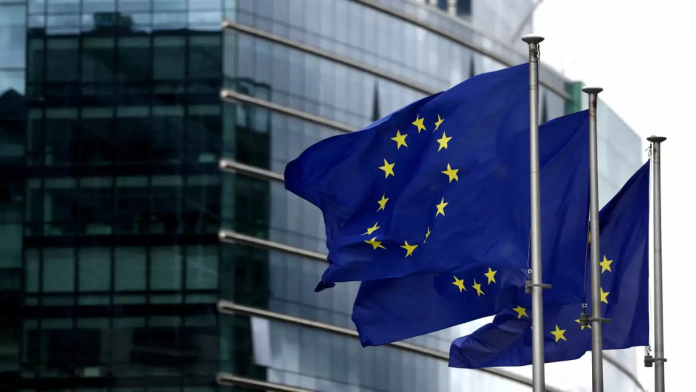The European Union has taken a strong step by sanctioning Intershipping Services Hub Private Ltd, the Indian subsidiary of UAE-based Intershipping Services LLC. This action comes as part of the EU’s continued efforts to crack down on global links that support Russia’s oil trade during the ongoing conflict with Ukraine. Along with the company, Captain Abhinav Kamal, an Indian national commanding the oil tanker Argent, has also been sanctioned.
These sanctions are drawing attention not just because of their targets, but also because they mark the first time an Indian individual has been directly penalised under the EU’s Russia-related measures.
According to the EU, Intershipping Services Hub Private Ltd is accused of providing cover and support to vessels carrying Russian-linked crude oil and petroleum products. This includes helping these ships operate despite EU restrictions on such trade. The EU claims the Indian branch played a key role in keeping certain vessels under the radar while they moved oil tied to Russian interests.
The EU also named Captain Abhinav Kamal, who allegedly gave material, technical, and financial help to operations connected to Russia’s oil export activities. Kamal, who was in charge of the crude oil tanker Argent, is now banned from working with or boarding any ship that has a connection to the European Union.
EU sanctions shake global oil game—India’s Reliance and Nayara strike back
Sources in the shipping industry say Kamal is the only Indian citizen so far to be included in the EU sanctions list related to the Russia-Ukraine conflict. These moves are seen as part of the EU’s attempt to close every loophole that might help Russian oil reach international markets despite the ongoing bans.
EU Sanctions: Limited Scope, Global Impact
While these sanctions sound tough, it’s important to note that they are not extraterritorial. This means they only apply to EU-based companies, citizens, and territories. The Indian government has also clearly stated that it does not recognise unilateral sanctions from any country or union, including the EU.
So, technically, non-EU companies can still do business with Intershipping Services Hub Private Ltd. However, in practice, things might be more complicated. The global shipping industry has strong ties with European companies and ports. This means a company or person on the EU sanctions list can find it difficult to operate smoothly even in non-EU regions.
All assets of Intershipping Services LLC held in the EU are now frozen. EU citizens and companies are banned from offering funds, services, or any business to the firm. This could limit the company’s ability to operate in areas that involve European financial systems, insurance, port services, or logistics.
🛑 Mislabeled Chinese engines secretly fuel Russia’s war — EU struggles to enforce sanctions
For Captain Abhinav Kamal, the consequences are especially personal. Being sanctioned means he is now banned from serving on any EU-associated vessel. That includes ships flying the flag of an EU country, ships owned by EU companies, or even ships that dock at EU ports. Industry insiders believe this could have a serious impact on his future in global maritime operations.
Sanctions Ripple Into India’s Oil Trade
The EU’s latest sanctions are also starting to impact oil-related activities within India. Nayara Energy Ltd, a large Indian refinery, is feeling the pressure because of its links to Russia. The company is partly owned by Rosneft PJSC, a major Russian oil firm.
Just days after the sanctions were announced, a ship named Talara cancelled its diesel cargo pick-up from Vadinar port, which is linked to Nayara. The ship left without collecting the fuel, reportedly due to concerns about EU restrictions.
Sources suggest that shipping operators are becoming cautious. Even though India does not follow the EU’s sanctions, many global firms don’t want to risk future complications. As a result, some are choosing to step back from businesses like Nayara that have Russian ownership.
These developments show how even targeted regional sanctions can create waves far beyond their original scope. As companies and individuals adjust to the new rules, the full impact of these measures on the global oil and shipping industries continues to unfold.


